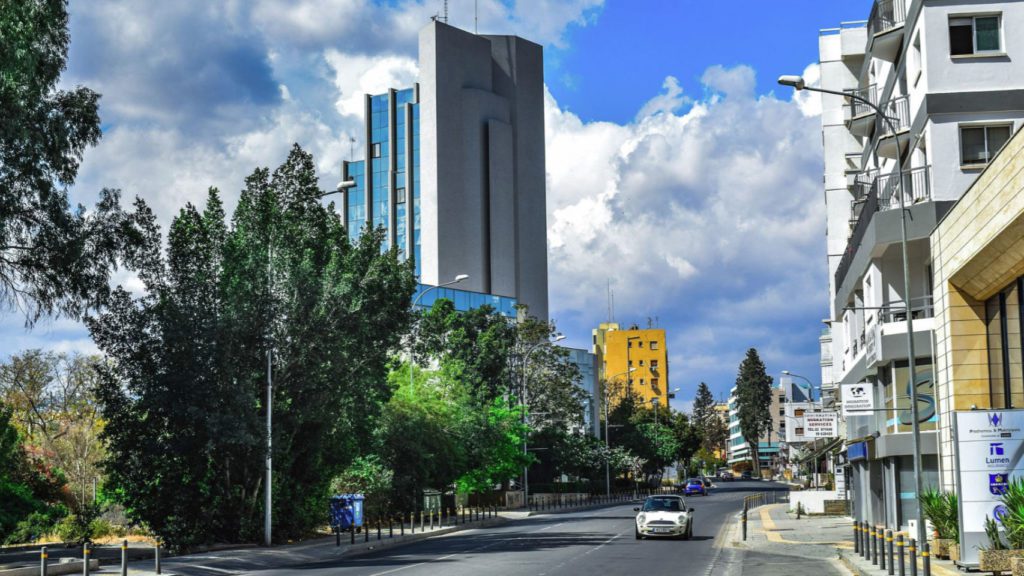Cyprus offers a low cost of living, plenty of sunshine, and a rich culture, so why not consider working there? However, there will be severe competition from the locals for jobs. Cyprus is divided into two populations: Greeks in the south and Turkish in the north. The country is located at the crossroads of Europe, Asia, and Africa, making it the ideal melting pot of these three cultures. Those who are successful in finding work are rewarded with year-round weather, beautiful beaches, thriving nightlife, and ancient sites from Greek, Byzantine, Crusader, and Islamic history.
Cyprus Job Opportunities
Over 600,000 people in Cyprus’ 1,218,285 population are employed. The major contributor to the nation’s GDP is the tourist industry, and opportunities can frequently be found there for foreign workers. Other important industries include those that process food and beverages, real estate, the service sector, shipping, and textiles.
The country is expected to attract significant foreign investment as a result of its use of natural gas resources and interest in green technologies and renewable energy. Foreigners may have trouble finding employment because they must compete with locals for positions. However, there are several techniques to increase your work prospects.
For instance, even though English is the preferred business language, most employers still require some understanding of Greek. Electrical engineering, finance, information technology, and telecommunications degrees are also highly sought.
You can find jobs in Cyprus at:
Teaching in Cyprus
Teaching English as a foreign language is possible in Cyprus, while competition for positions is high and the number of available positions is restricted. Those with at least two years of teaching experience are eligible for positions in private international schools.
A bachelor’s degree is normally required, as well as a certificate in Teaching English as a Foreign Language (TEFL). The majority of openings are in Paphos, Larnaca, Limassol, Famagusta, and Nicosia. Working hours are normally 20 to 30 hours per week, with salary and perks based on your qualifications.
You can browse teaching opportunities in Cyprus at:
Summer Jobs
Seasonal and casual work is quite easy to get in the country due to the country’s big tourism sector. Those looking for summer work can find it in hotels, pubs, cafes, and restaurants. Because Ayia Napa’s legendary nightlife attracts thousands of international workers each year, various bar, club, and public relations positions are available throughout the summer. During the low season, you can anticipate working four to five days per week, but six to seven days during the busy season. Fruit picking is another casual opportunity.
Volunteering opportunities are available all year in Cyprus, especially in Paphos, Larnaca, Limassol, Famagusta, and Nicosia. Volunteering is frequently incorporated into work camps and youth exchange programs.
Many opportunities are for environmental or conservation initiatives, such as animal sanctuaries and marine projects.
Internships
There is no national regulation governing student placements; instead, universities, professional groups, and other stakeholders organize internships and work experience. Among the options are:
- Work and Travel Cyprus: This program is intended for young EU citizens looking for international job experience. It provides three-month placements in coastal hotels and restaurants. Most positions include lodging and meals.
- United Nations Development Programme (UNDP) in Cyprus: Through the United Nations Action for Cooperation and Trust (UNDP-ACT) and Partnership for the Future (UNDP-PFF) programs, students develop a grasp of UNDP’s policies and aims. Students studying conflict resolution, economics, international relations, sociology, public or corporate administration, and environmental studies will benefit from it.
Summer internship programs are also offered by Deloitte, EY, KPMG, and PwC in Cyprus.
How to Get a Job in Cyprus
Networking is frequently one of the greatest methods to find a job. For foreigners, using personal contacts and learning about job openings through word-of-mouth is the most straightforward method of employment.
Would You Like To Apply For This Jobs/Sponsorship?
Enter Your Email Address HERE & You Will Receive a Notification About Your Application. If it shows "Subscribed" CLICK HERE to follow on Telegram for updatesYour initial stop should be the Public Employment Office, which can be found in all large towns and cities if you don’t already have many contacts. Several Cypriot businesses take CVs all year long so they may hire as needed, therefore speculative applications are also effective.
Similar to the UK, application procedures involve submitting an application form or a CV together with a cover letter, as is customary. If successful, the interview stage will follow. Most positions allow for online applications.
Work Visa for Foreign Employees in Cyprus
Non-EU citizens seeking employment are typically eligible for one-year long-stay visas. They must be accompanied by letters from your employer – or, if you are self-employed, from an accountant or solicitor.
For additional information on work visas for non-EU nationals, contact the Cypriot embassy in your place of origin. The GOV.UK – Travel to Cyprus for Work page may be useful, as well as the Civil Registry and Migration Department.
EU nationals can visit and work in Cyprus without a visa, however, those staying for longer than three months must apply for a registration certificate.
You must show that you have a job and the resources to sustain yourself to receive a certificate. Additionally, you’ll need to apply for a social security number and an Alien Registration Card (ARC). When you get there, make an application right away.
The cost of living is high, yet average salaries are low. There is no such thing as a minimum wage in any country. The work week runs from Monday to Friday, with an average of 40 hours spent every week. Depending on where you work and how long you’ve been there, you’re entitled to between 20 and 24 days of paid vacation time per year. The country observes many national holidays, including Greek Independence Day (March 25), Labor Day (1 May), and Cypriot Independence Day (1 Oct).







Am princewill Nosike from Nigeria, am interested in working in Canada, please help me. thanks.